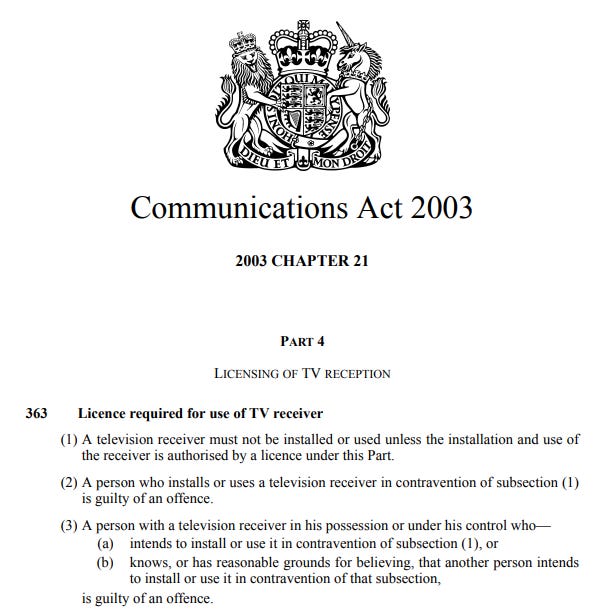The BBC's depressing lack of inherent institutional strength
The BBC needs to be a robust, independent institution
The British (or Bullied) Broadcasting Corporation is suffering another kicking.
Of course, the BBC is not perfect, and nor is its ultimate legal method of funding, which relies on the criminal law and a prohibition on using television sets without a licence (ie, permission) from the state.
That the criminal law is involved at all in this area is a wrong and something to which this blog may return. There are other ways of funding a public service broadcaster and the sanction for non-payment of the licence fee should be a civil debt and not anything to do with the criminal law.
But there is also a great deal of good about the BBC and its special legal structure.
(Personal tastes will differ in respect of content. I will give a shout for radio channels 3, 4 and 5, the world service, local news, and for Match of the Day. I loathe the Today programme and Question Time, now parodies of what were once-interesting news formats. And many current news priorities of the online BBC news do seem rather odd, though not in the way the commercial media aver.)
*
The primary benefit of the BBC is that there is a large-scale broadcaster and online publisher structurally outwith the commercial pressures of the other forms of news media. And this is a valuable benefit.
Legal frameworks and nominal autonomy, however, are of less importance than a sense of institutional integrity.
Just as this blog emphasises that constitutionalism is more important than the form of any constitution, institutions such as the BBC require an independent robustness more than anything written in a charter.
And once that spirit goes, then the institution itself is undermined.
There will be those who will clap and cheer at the senior BBC resignations over the last couple of days, but such elation is misconceived. For the BBC to be this weak as an institution when faced with outside (and politically motivated) criticism is not a sign of a healthy mixed polity.
One of the many bad things done by the Blair governments was the kicking of the BBC over the Iraq WMD issue. The political benefit gained by the administration of the day was more than outweighed by the collapse of institutional confidence within the BBC.
And the current kicking seems similar in its nature - and will no doubt have similar effects.
Something precious in our polity is again being trashed, just because some with political motives want to give the BBC a good kicking, and the BBC will not (or cannot) defend itself.


I love the World Service. It's a British "soft power" bargain and any serious BBC management would substantially increase its budget
A very dangerous time for the BBC. It requires secure public funding at a time when it will be competing with the needs of deprived children. The Right will do its best to destroy it, while the Left’s social media constantly snap at its ankles. Two scary years ahead.